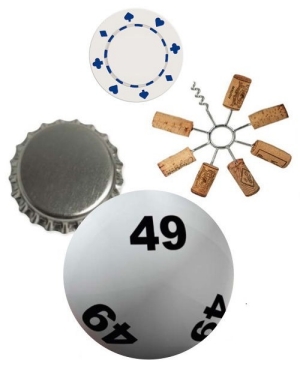As long as there is a demand, eliminating the SAQ and Loto-Québec now would do little to reduce alcohol consumption and gambling in the province — indeed, if the government vacated the field, the private sector would simply swoop in and pick up the reins.
The provincial government, Chorney explains, has two recourses at its disposal when it comes to dealing with alcohol and gambling activities: regulate the commodity through crown corporations; and apply taxes to act as a disincentive for “consuming” excessive amounts of the commodity. Hiking taxes as a method of reducing consumption has its limits, says Chorney. Taxes on wine and alcohol are already very high in Quebec compared with European countries and there’s a threshold to how much citizens are willing to pay.
“Reducing consumption isn’t really the government’s place,” he says. “Reducing alcoholism, yes. Reducing gambling addiction, yes. But to say, ‘We don’t want people to drink wine,’ in Quebec, forget it. You’d get tossed out of office by the voters. People would be furious.”
In his opinion, the government can help by keeping its eye on the overall health of the economy — making sure the business cycle doesn’t spin downward, for example, and paying attention to prevent the unemployment rate from rising. “Alcohol consumption goes up when economic depression strikes, when people lose their jobs, when families begin to break down, when neighbourhood and community begins to decline,” Chorney says. “So another way of fighting alcoholism is to make sure that those kinds of conditions don’t occur.”
Unhealthy rituals
It takes a village to fight a beast as big as addiction. It may be tempting to try to single out one person or organization for blame, but only a community effort will change things.
Take a look at drinking culture in university communities, where there can be surge in heavy, normalized alcohol consumption. Drinking is historically part of the college experience, part of the environment that seems to be perpetuated year after year through endless rituals like pub crawls and frosh. Still, just because everyone is doing it, doesn’t make it healthy.
“There needs to be more of a focus on young-adult drinking rather than writing it off as a stage they’ll grow out of,” says Roisin O’Connor, assistant professor in the Department of Psychology. “It’s difficult to know who’s in trouble and who isn’t because there’s just this explosion of heavy use during this period.”
O’Connor is interested in the associations people have with alcohol and how they play into in-the-moment drinking. These associations or beliefs start forming in childhood, well before that first-ever sip of beer. For example, if a young child sees his parent indulge in a glass of wine after a tough day, the child may begin to associate drinking with stress relief. Likewise, heavy drinking and higher education may become strongly linked as a young person has ample opportunity to watch movies featuring toga-wrapped sorority girls and frat boys. Once alcohol becomes available, these associations finally get the opportunity to play out.
“By identifying the reasons or motives behind why people are drinking, we get our foot in the door and can potentially help individuals,” O’Connor says. “We all have a huge responsibility to help alter how people think about drinking during that age period.”
Changing the environment around young-adult drinking involves a multi-faceted effort, starting in the home with parents having conversations with their kids and being aware of what’s motivating them to drink. Universities need to bolster the basic yet essential “Don’t drink and drive” campaigns with critical dialogue on student drinking culture.
Government has a role to play as well by helping to support alcohol intervention and prevention programs within universities and health centres.
Stigma attached
As for gambling, Kairouz says that Quebec has one of the best treatment programs in the world for pathological gamblers with free, accessible services available in all regions.
Help is there for those who seek it. The problem, according to Kairouz, is that many do not. “Gambling can be a hidden addiction. There’s a stigma associated with it, a negative association and shame that goes with the experience of being a gambler, which prevents people from talking about their problem and seeking help. By the time people discover that a loved one has a gambling problem, sometimes it’s too late and a lot of damage has already been done,” she says.
Prevention cannot move forward as long as we’re still entertaining the stigma and moral judgment towards the addict. Even if Loto-Québec and the SAQ would devote half their respective revenues towards treatment and awareness programs, nothing will change if people are too ashamed to reach out.
To help those suffering from addiction, society first needs to extend its hand.
—Alyssa Tremblay is a student in Concordia’s Department of Journalism.




 Clockwise from left:
Roisin O’Connor, assistant professor, Department of Psychology; Nadia Chaudhri, assistant professor, Department of Psychology; Harold Chorney, professor, Department of Political Science; and Sylvia Kairouz, associate professor, Department of Sociology and Anthropology.
Clockwise from left:
Roisin O’Connor, assistant professor, Department of Psychology; Nadia Chaudhri, assistant professor, Department of Psychology; Harold Chorney, professor, Department of Political Science; and Sylvia Kairouz, associate professor, Department of Sociology and Anthropology.
